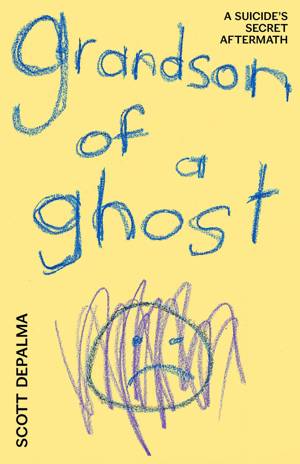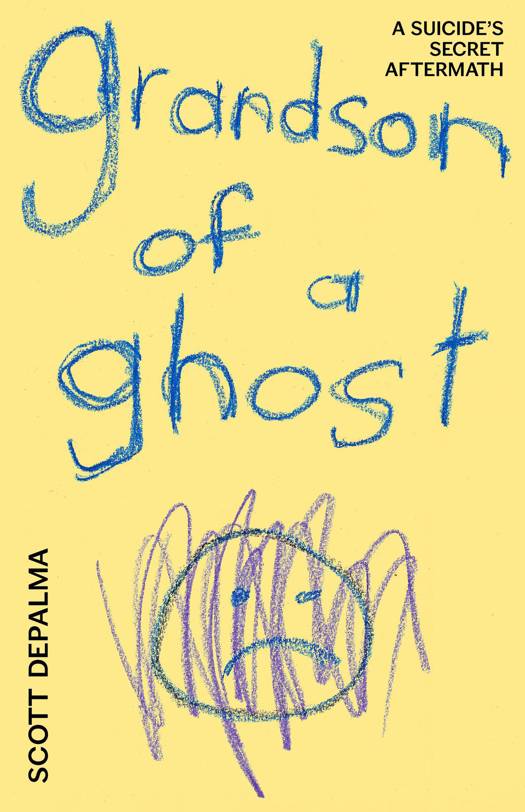
- Retrait gratuit dans votre magasin Club
- 7.000.000 titres dans notre catalogue
- Payer en toute sécurité
- Toujours un magasin près de chez vous
- Retrait gratuit dans votre magasin Club
- 7.000.0000 titres dans notre catalogue
- Payer en toute sécurité
- Toujours un magasin près de chez vous
Description
Grandson of a Ghost explores how a family's unspoken, festering grief impacted a boy born 25 years after the suicide of his grandfather. It follows the struggle of Scott as he grows up but fails to see how abuse from his mother clouded his perception of the world, and fueled his self-destructive behavior as an adult. Following a tumultuous childhood, Scott moves from northern New England — driven by his demons — to New York in 1985, amid the AIDS crisis and the new wave scene in the East Village. Over the years, he comes out as gay and makes a career in the magazine business.
Unable to break free from bouts of depression and inexplicable self-doubt, Scott eventually decides to start weekly psychotherapy sessions in a last-ditch endeavor to save himself. Through the work with his therapist, Scott learns to recognize and confront low self-esteem, anger, defensiveness and isolation. He begins to accept the love shown by others instead of pushing it away. He understands for the first time that love matters. It means something. Scott shares his journey away from a need to hide himself, toward a life lived with intimacy and authenticity.
KIRKUS REVIEW
Depalma offers a debut novel, based on true events, about navigating life after an abusive childhood.
This emotionally charged story begins in 1968, when 5-year-old Scott and his family move from Maryland to Vermont for his father's work. The family's history is clouded by the long-ago suicide of Scott's grandfather, Dimitri Adamov, as well as by the relentless physical punishments that Scott's mother, Ava, gives him (but not his 7-year-old sister, Pamela). Brutal abuse at home ("the same way her mother had hit her brothers when they were little") and bullying at school psychologically scar him, making him insecure and angry in high school. He makes a friend in his new neighbor, Tom, which ultimately clarifies his own latent homosexuality. Singing, slam dancing, editing the college newspaper, and experiencing first love alleviate Scott's depression, but a move into New York City in 1985 to enroll in a summer publishing program and escape the "prissy tidiness of white suburbia" proves the best remedy. However, drugs, the burgeoning AIDS crisis, the "pure decadence" of the nightclub scene, and a sketchy, shared apartment drags him down. Courageously coming out to his parents and confiding in a psychotherapist are the first steps he takes to achieve the independence and peace he craves. This book often seems more like a transformative memoir than it does a novel, and as a work of fiction, the overall story lacks momentum and narrative tension. However, the minute details of days, good and bad, are depicted with precision, as if by someone who witnessed and experienced them firsthand. Indeed, Depalma's prose remains polished throughout, and although the story isn't always a very sunny tale, its themes of freedom, self-discovery, independence, forgiveness, and resolution lift it to a satisfying place that readers are likely to appreciate.
An often poignant and resonant rumination on the enduring effects of abuse and what it takes to overcome, survive, live, and love again
Spécifications
Parties prenantes
- Auteur(s) :
- Editeur:
Contenu
- Langue:
- Anglais
Caractéristiques
- EAN:
- 9780997944914
- Date de parution :
- 25-10-16
- Format:
- Ebook
- Protection digitale:
- /
- Format numérique:
- ePub

Les avis
Nous publions uniquement les avis qui respectent les conditions requises. Consultez nos conditions pour les avis.






